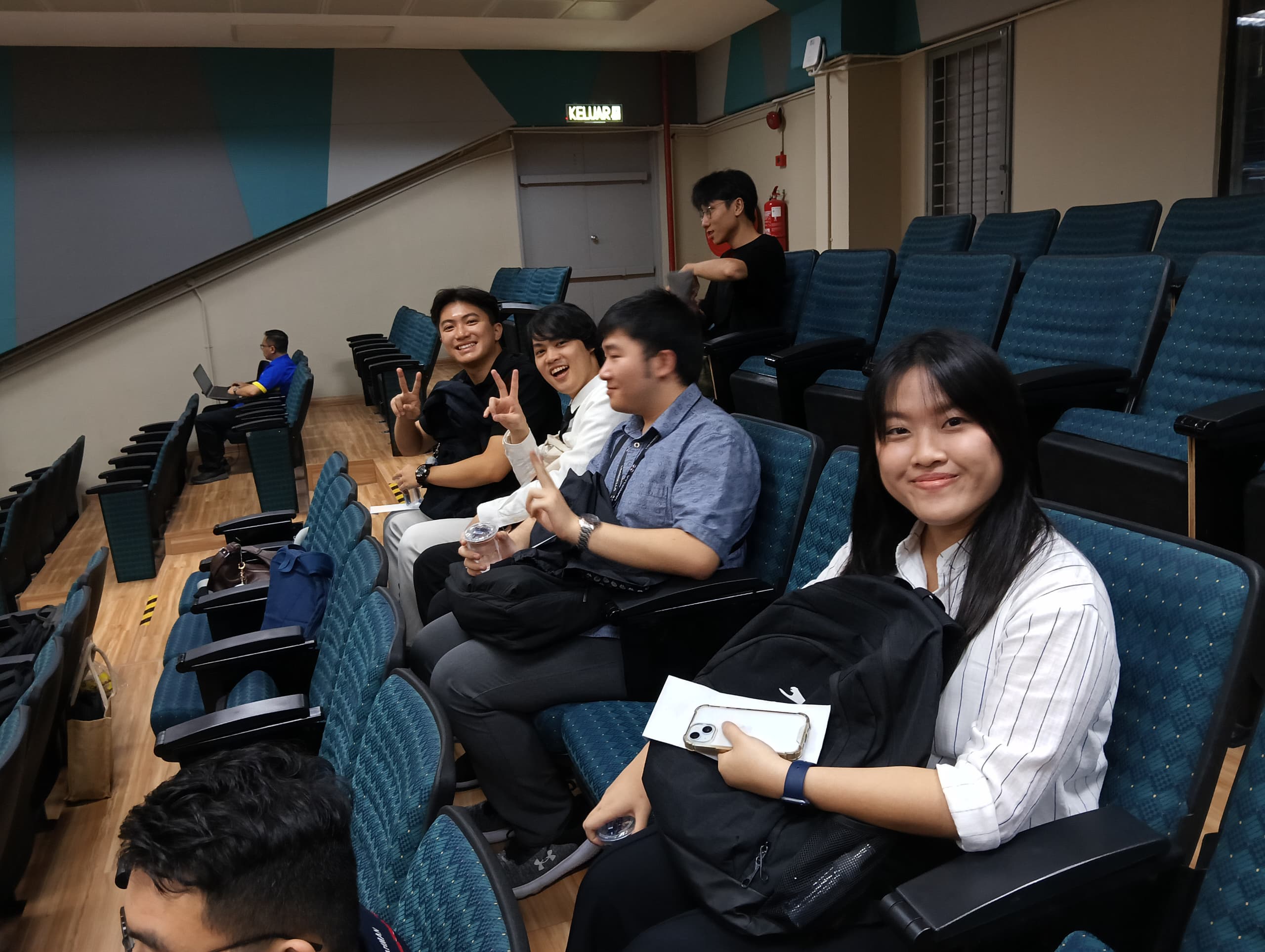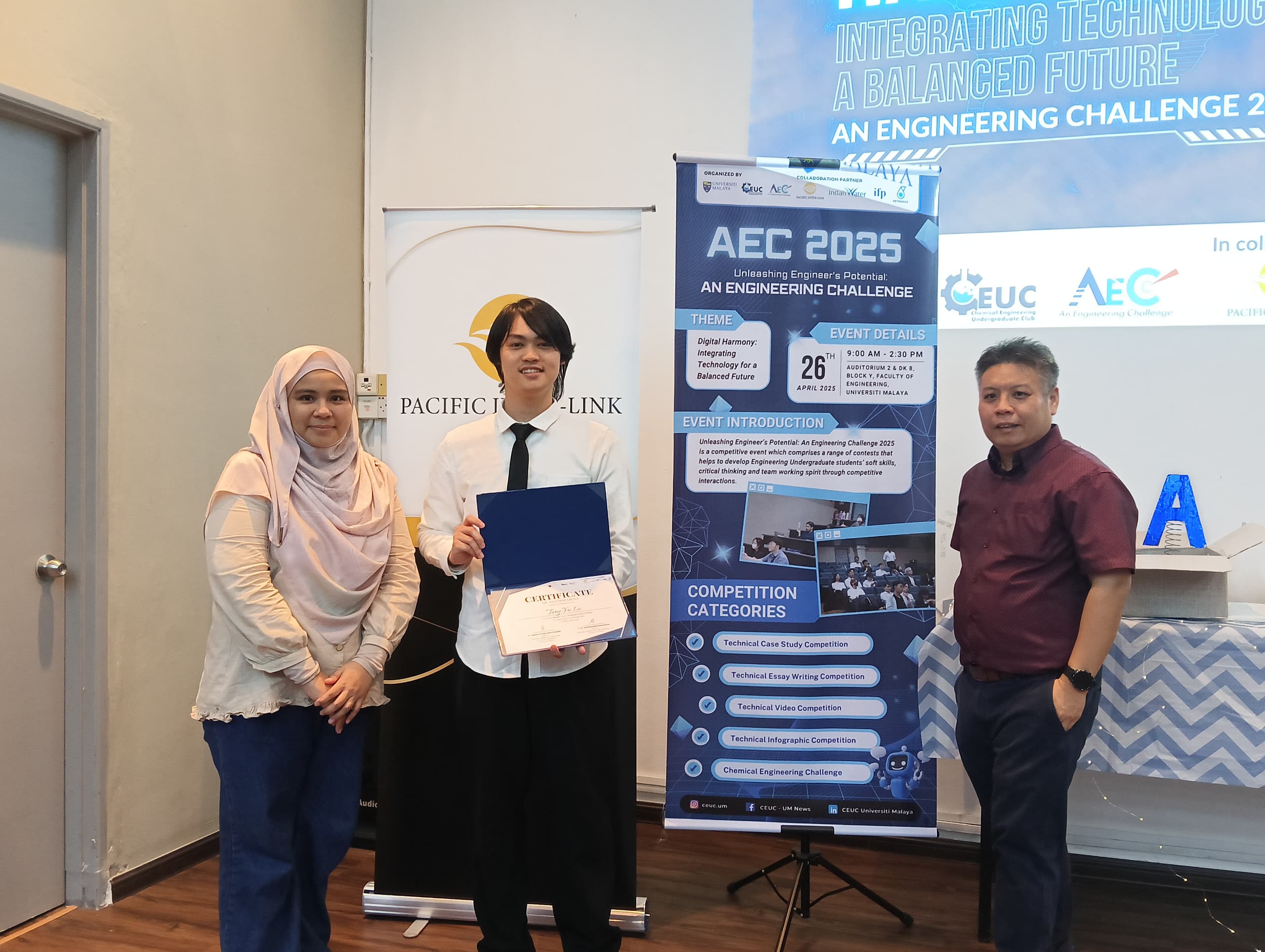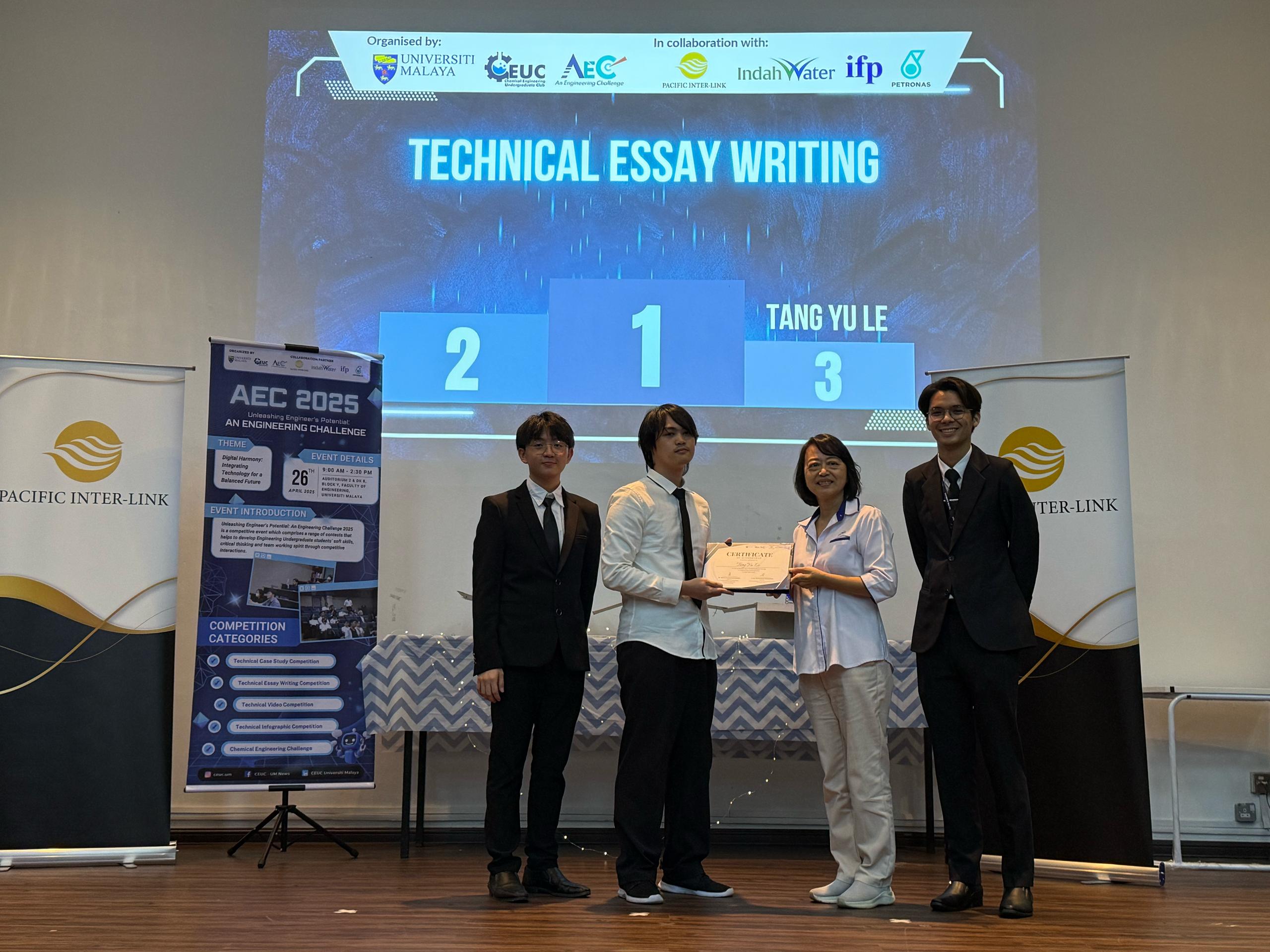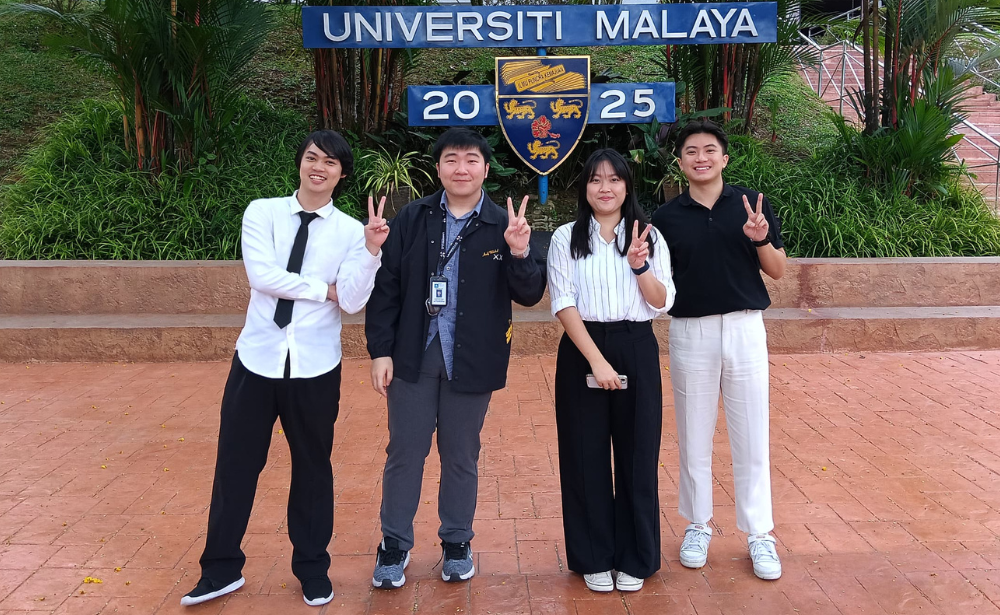SEGi University’s rising stars in Chemical Engineering proved their mettle at the prestigious An Engineering Challenge 2025 (AEC 2025), hosted by Universiti Malaya. Themed Unleashing Engineer’s Potential, the nationwide competition ran from 24 February to 26 April 2025 and drew participation from top universities across Malaysia. Among the standout achievements, SEGi’s Tang Yu Le clinched third place in the Technical Essay Writing Competition with a compelling paper on nanotechnology in wastewater treatment—an entry that captured both scientific precision and real-world relevance.
Yu Le attributed his win to the Darwinian Initiative for Chemical Engineering (DICE) programme, a platform empowering students to engage with industry projects under expert mentorship. His experience working with Assoc. Prof. Ir. Dr. Chan Mieow Kee on nanoparticle and membrane separation technologies enabled him to craft a nuanced, data-driven essay. His accomplishment reflects the growing importance of nanotechnology in environmental engineering, a sector gaining global momentum. According to the Global Nanotechnology Market Report 2023, the sector is expected to reach USD 125 billion by 2027, driven largely by applications in water purification and sustainability.
In another key highlight, SEGi’s Ngeow Quan Juen secured fourth place in the Chemical Engineering Quiz Competition, besting over 20 semi-finalists in a high-pressure test of knowledge and application. His resolve to return stronger next year reflects the resilience and ambition SEGi nurtures in its students. He was joined in the semi-finals by fellow SEGians Tang Yu Le, Ng Nii Chien, and Hew Qi Young, who all showcased exceptional technical understanding, critical thinking, and composure on a national platform.
These achievements underscore the commitment of SEGi’s Chemical Engineering department to produce future-ready engineers with strong academic foundations and competitive edge. In an era where engineering plays a pivotal role in addressing sustainability and global water crises, nurturing such talent is not only commendable—it’s necessary. The United Nations estimates that by 2025, half of the world’s population could be living in water-stressed areas. Equipping young engineers with the knowledge to tackle such issues through innovation is critical to global progress.
By fostering real-world skills through competition exposure, industry-linked projects, and academic rigour, SEGi continues to position itself as a driver of purposeful education—developing problem-solvers ready to make a difference. This event is organised in support of the following United Nations Sustainable Development Goals (SDG):
Goal 4: Quality Education
Goal 6: Clean Water and Sanitation
Goal 9: Industry, Innovation and Infrastructure




